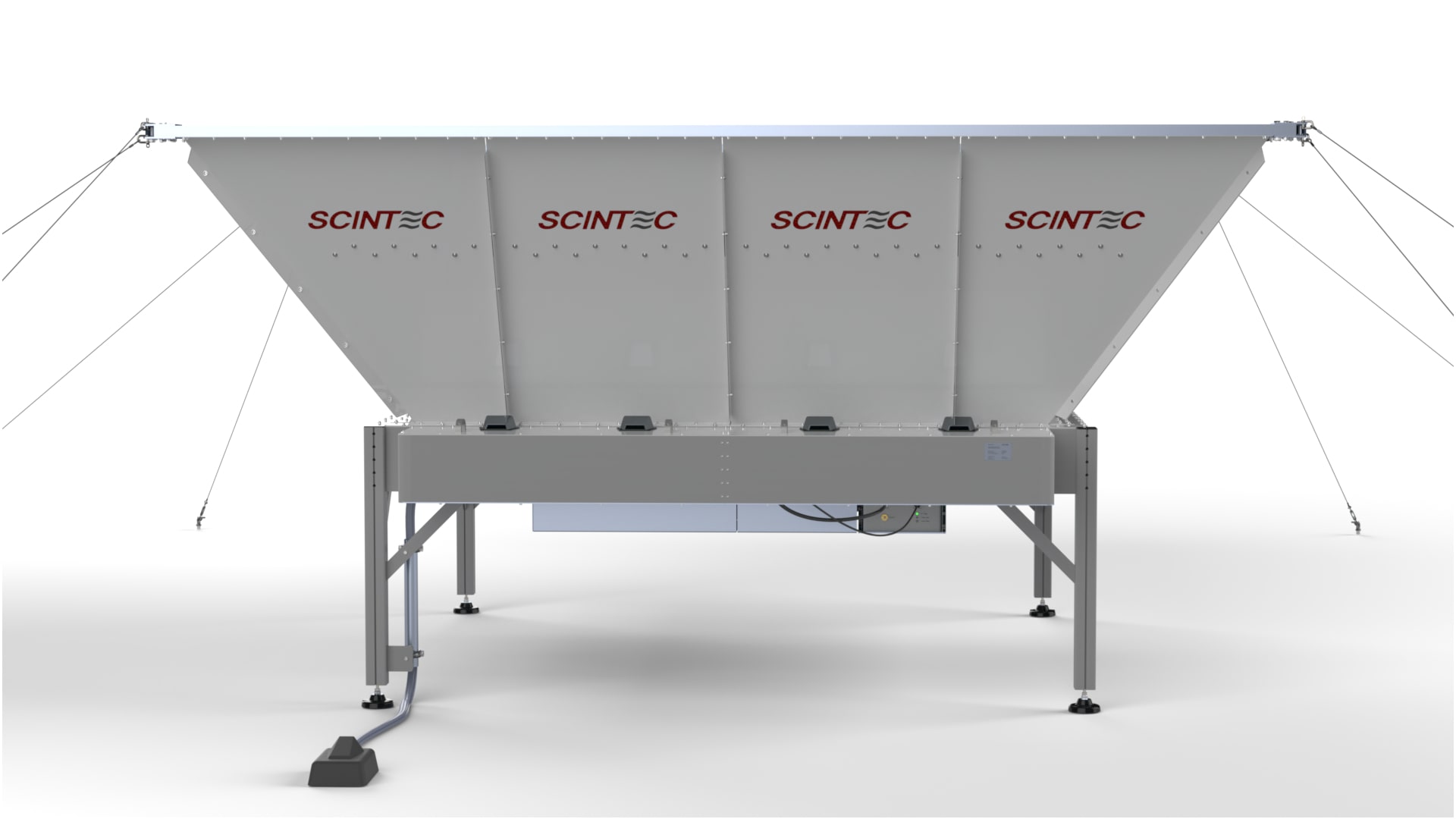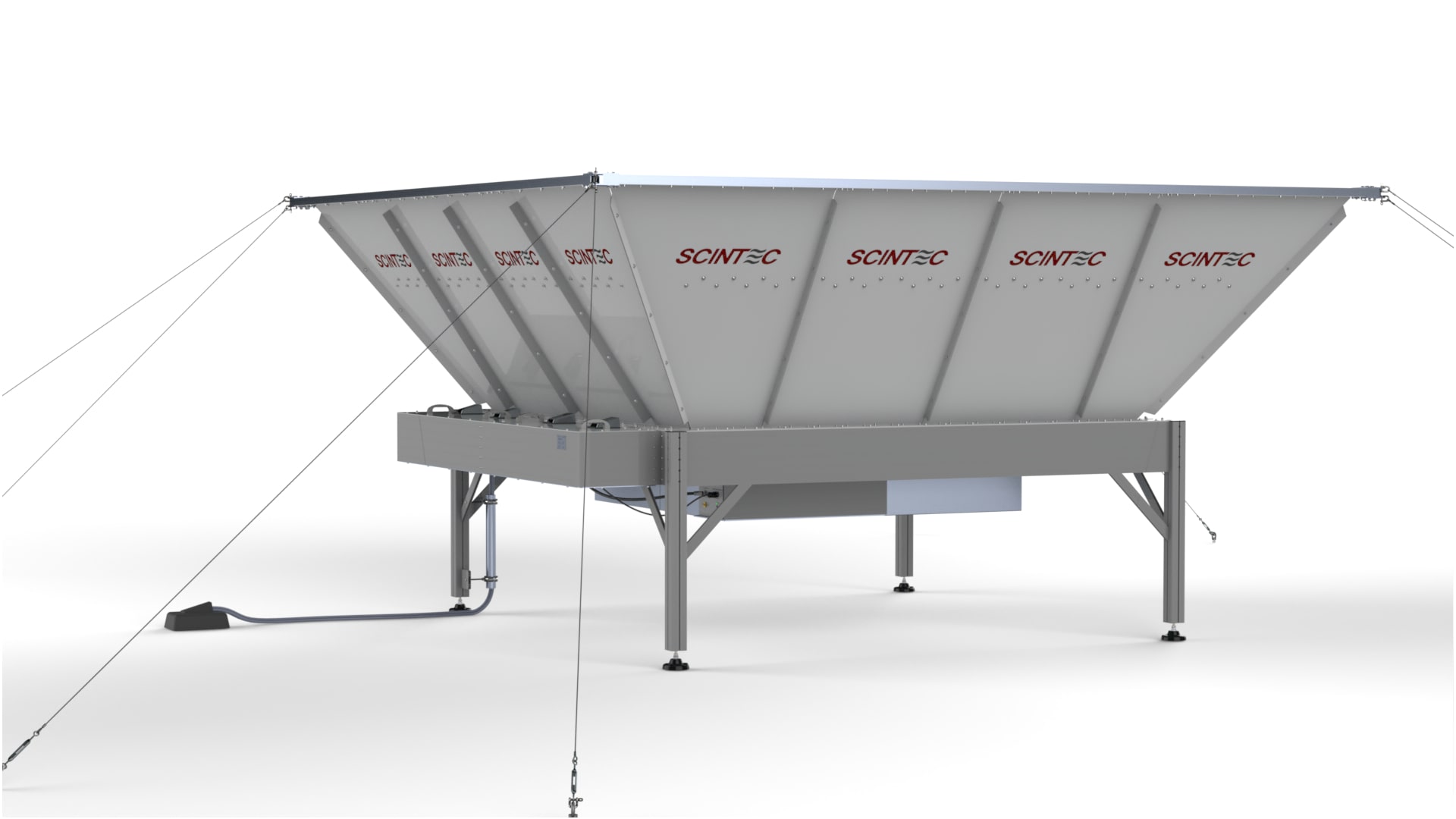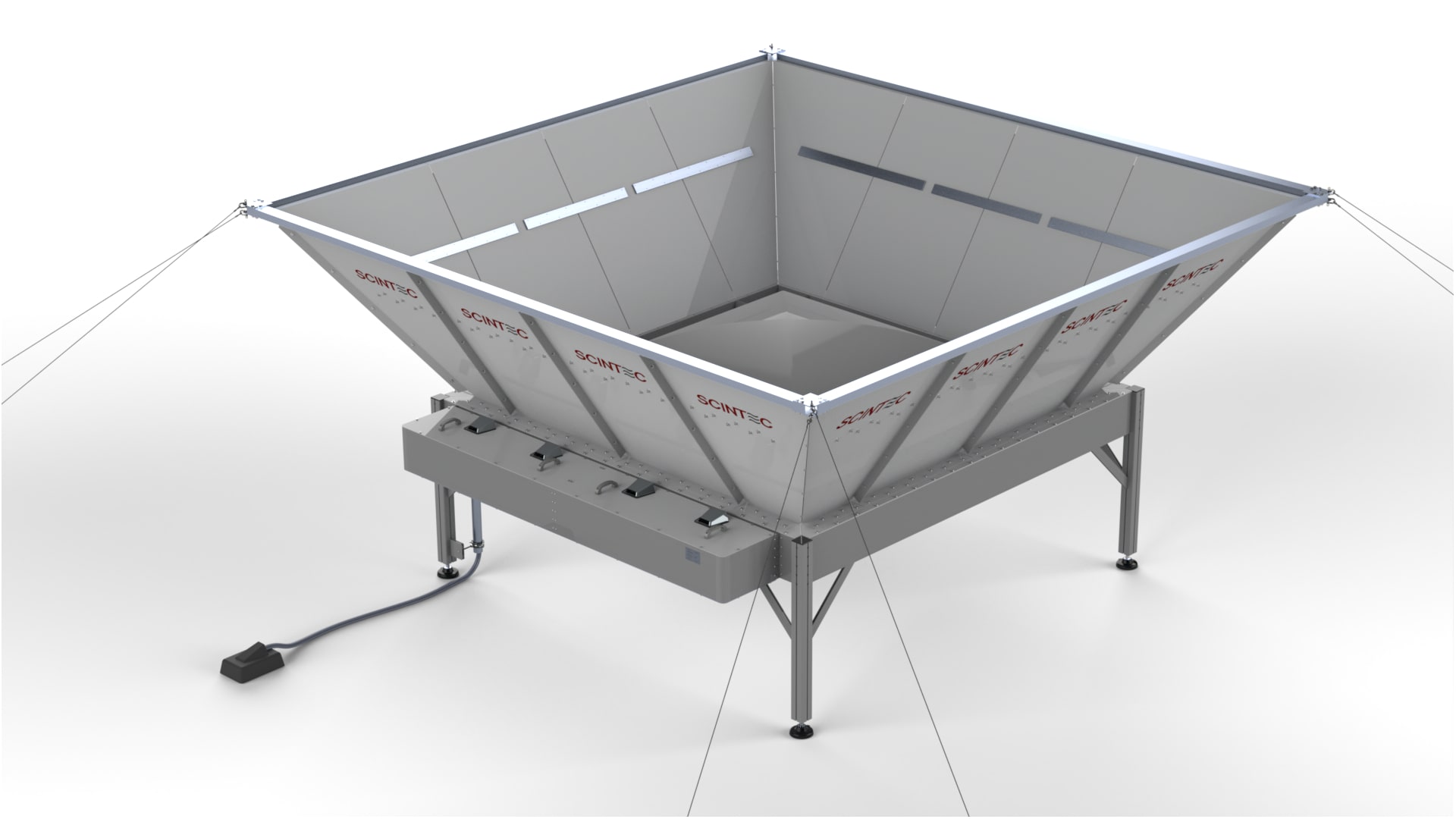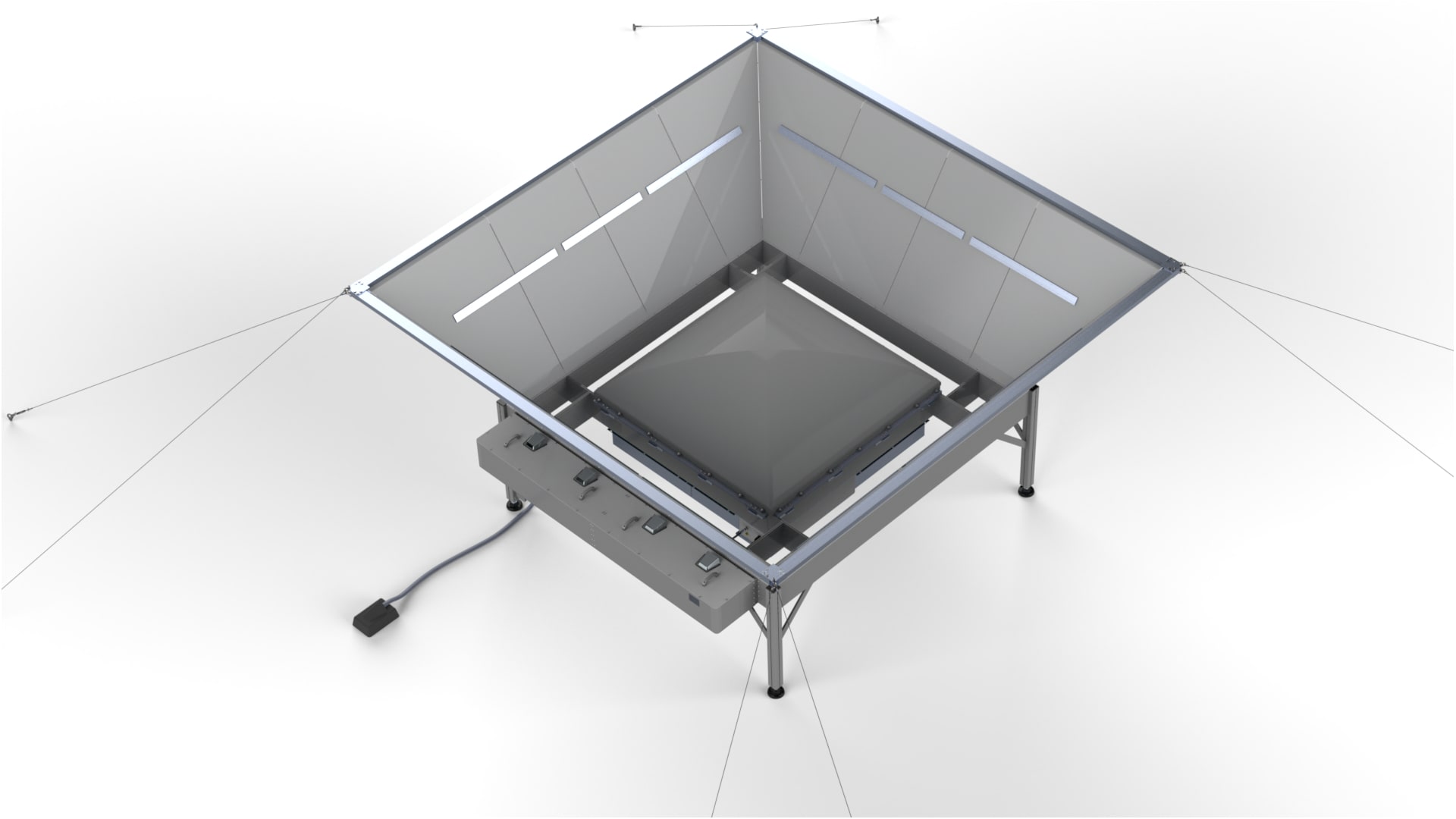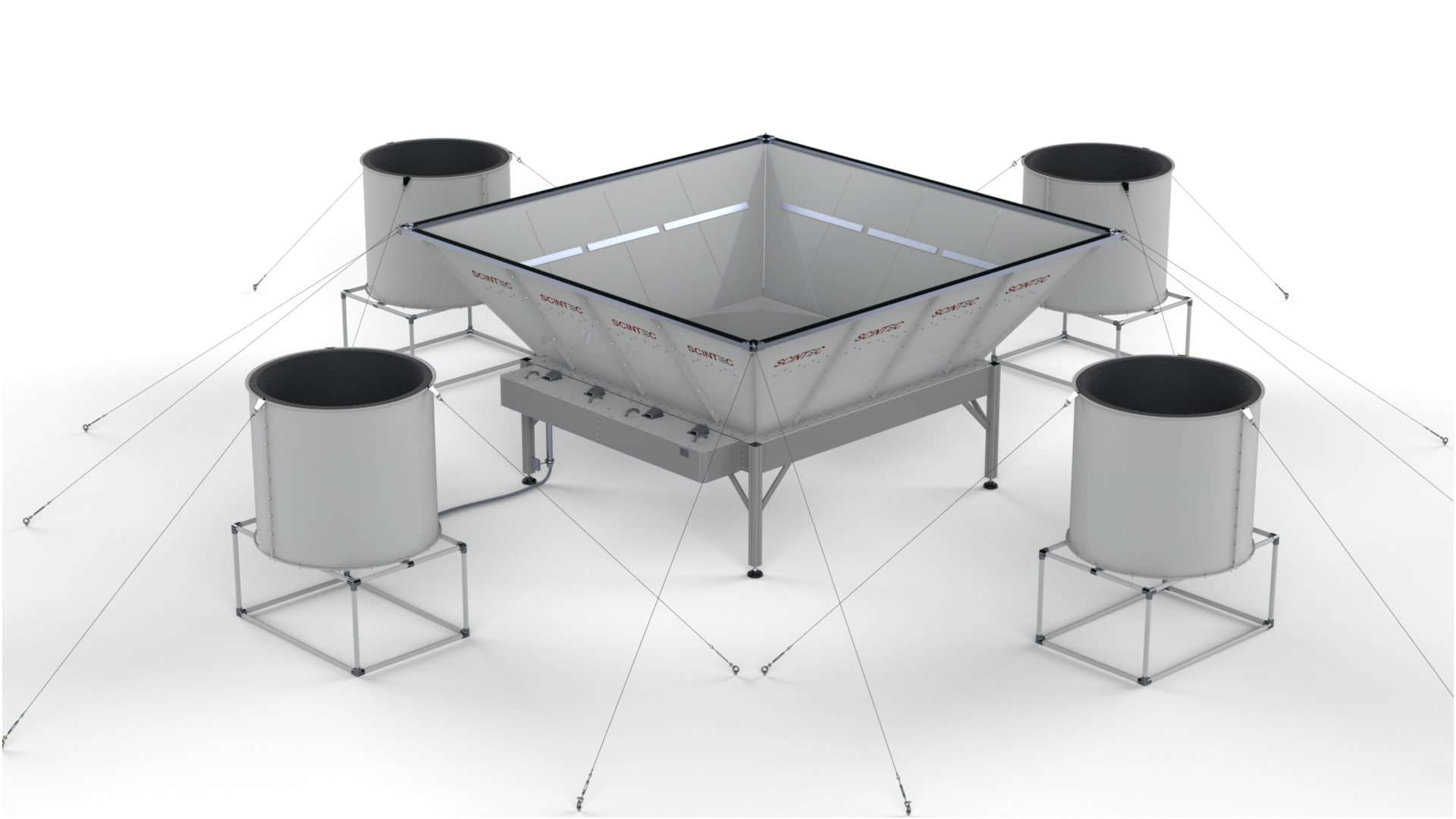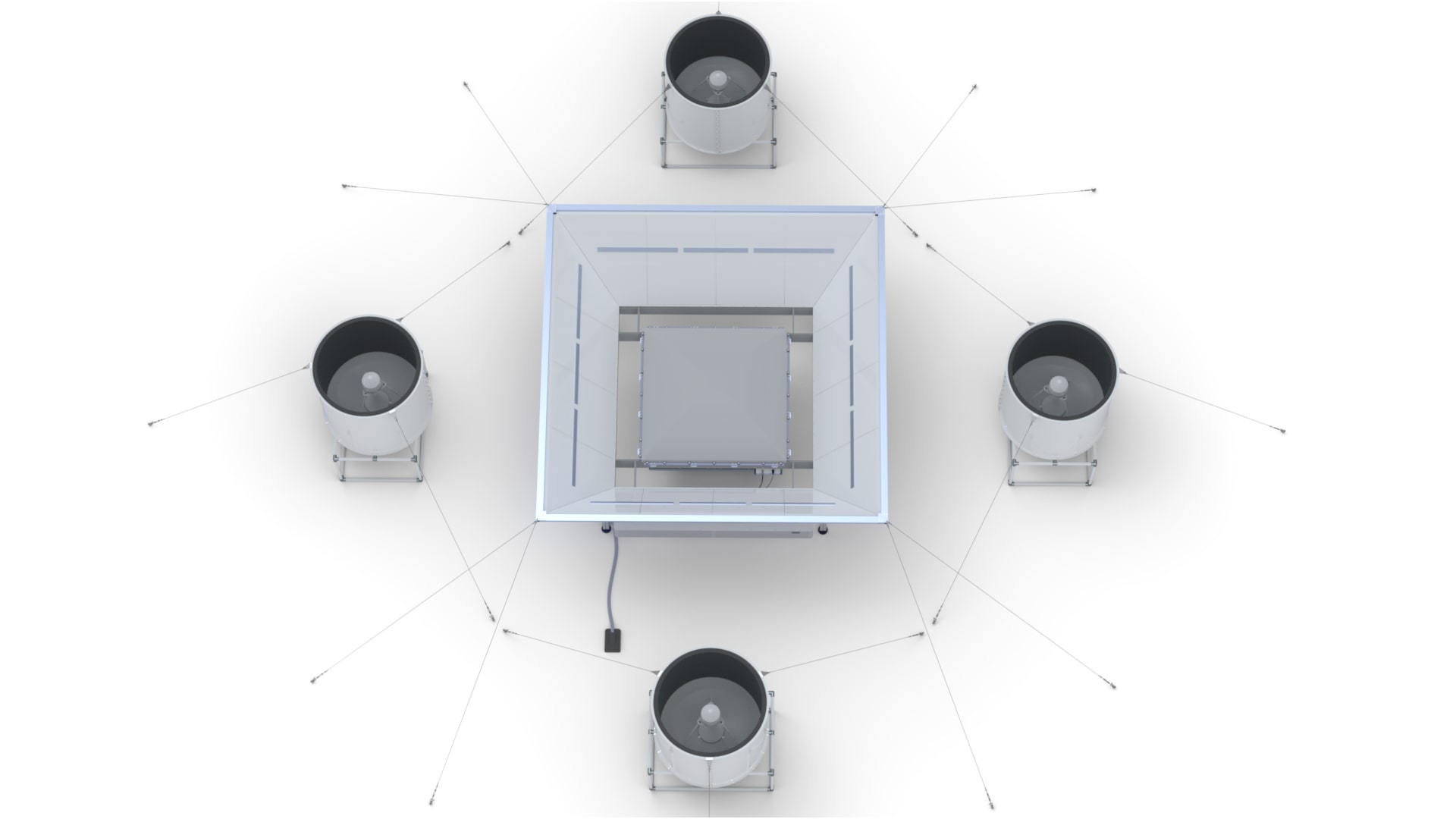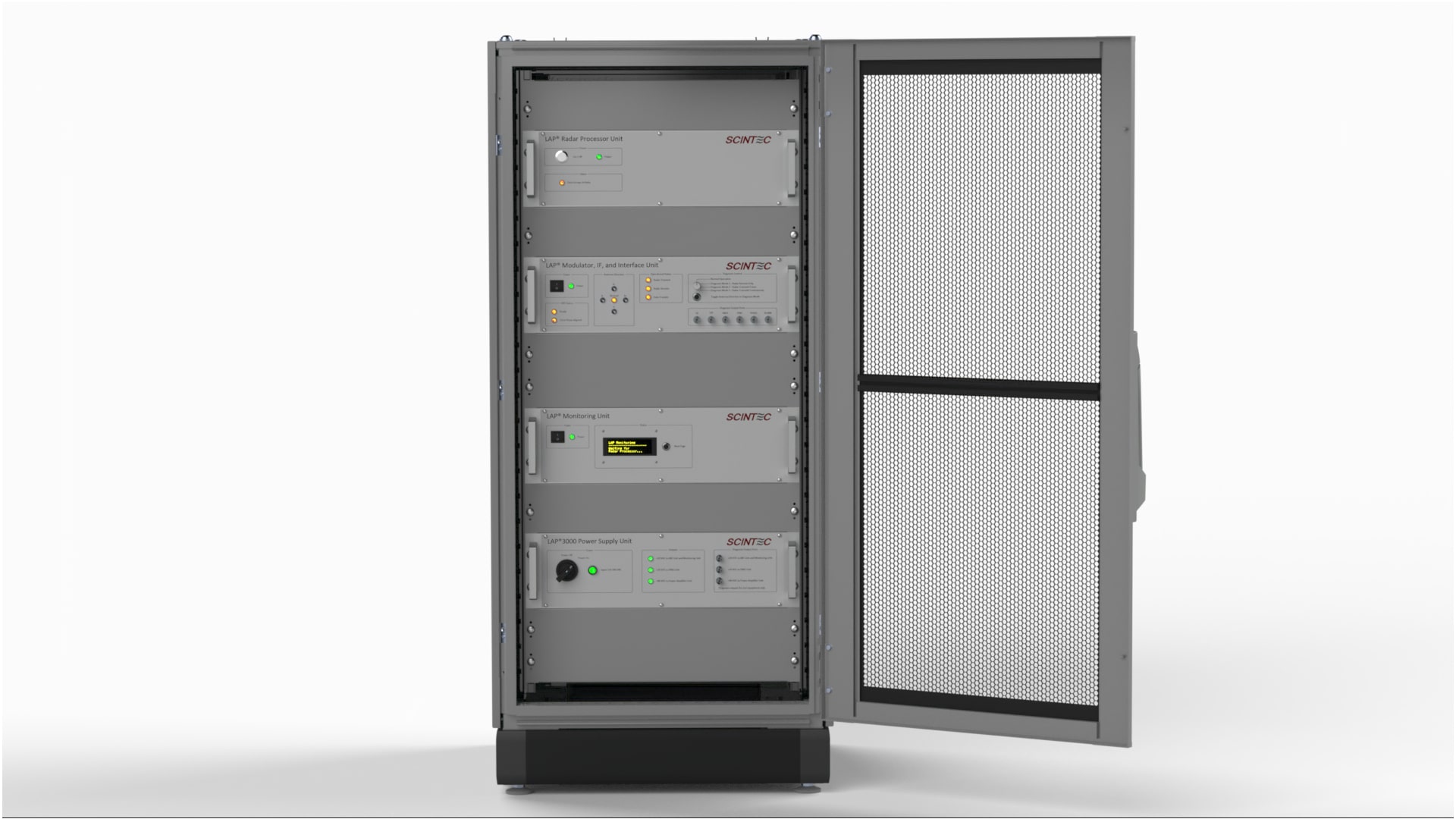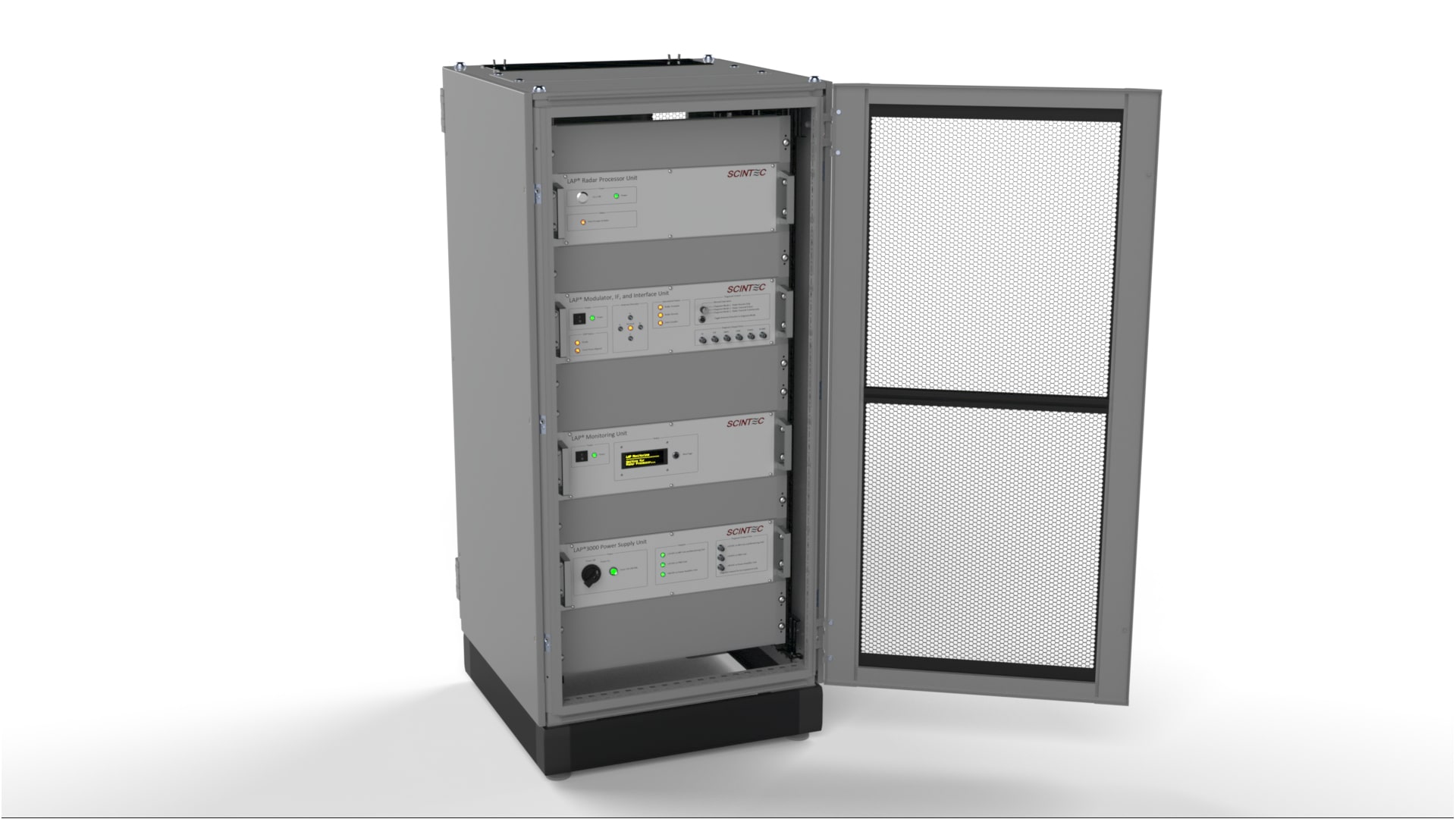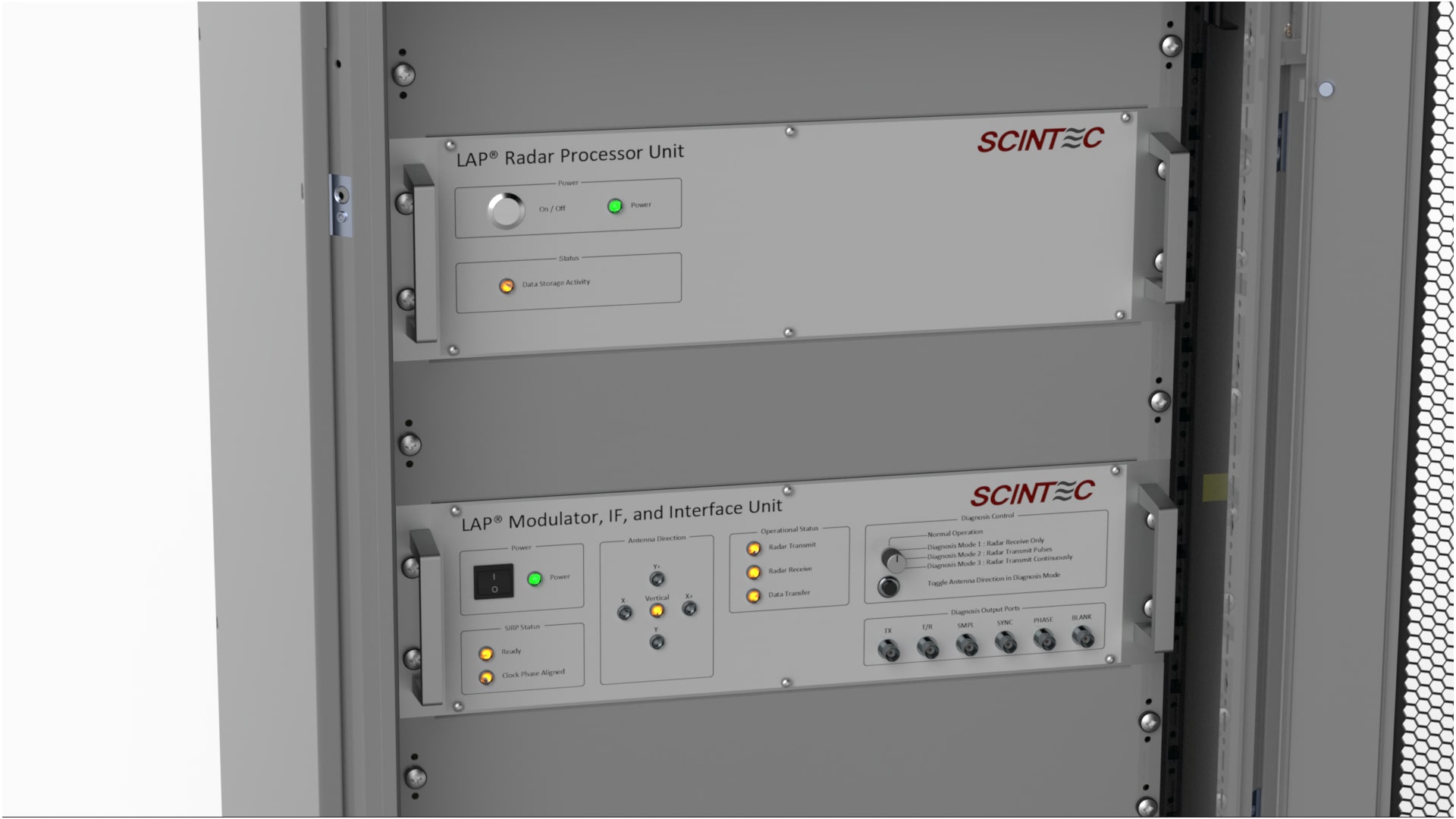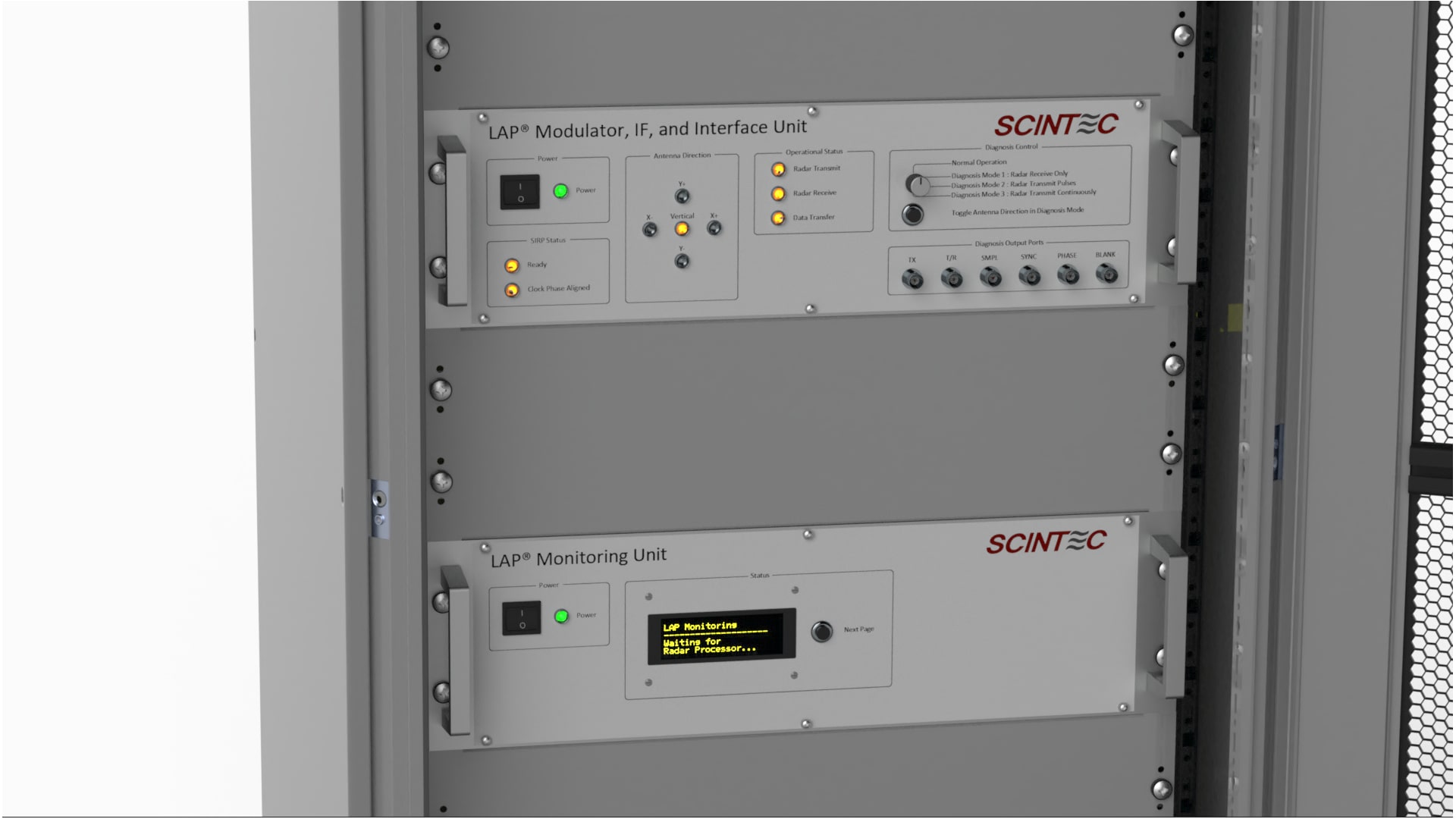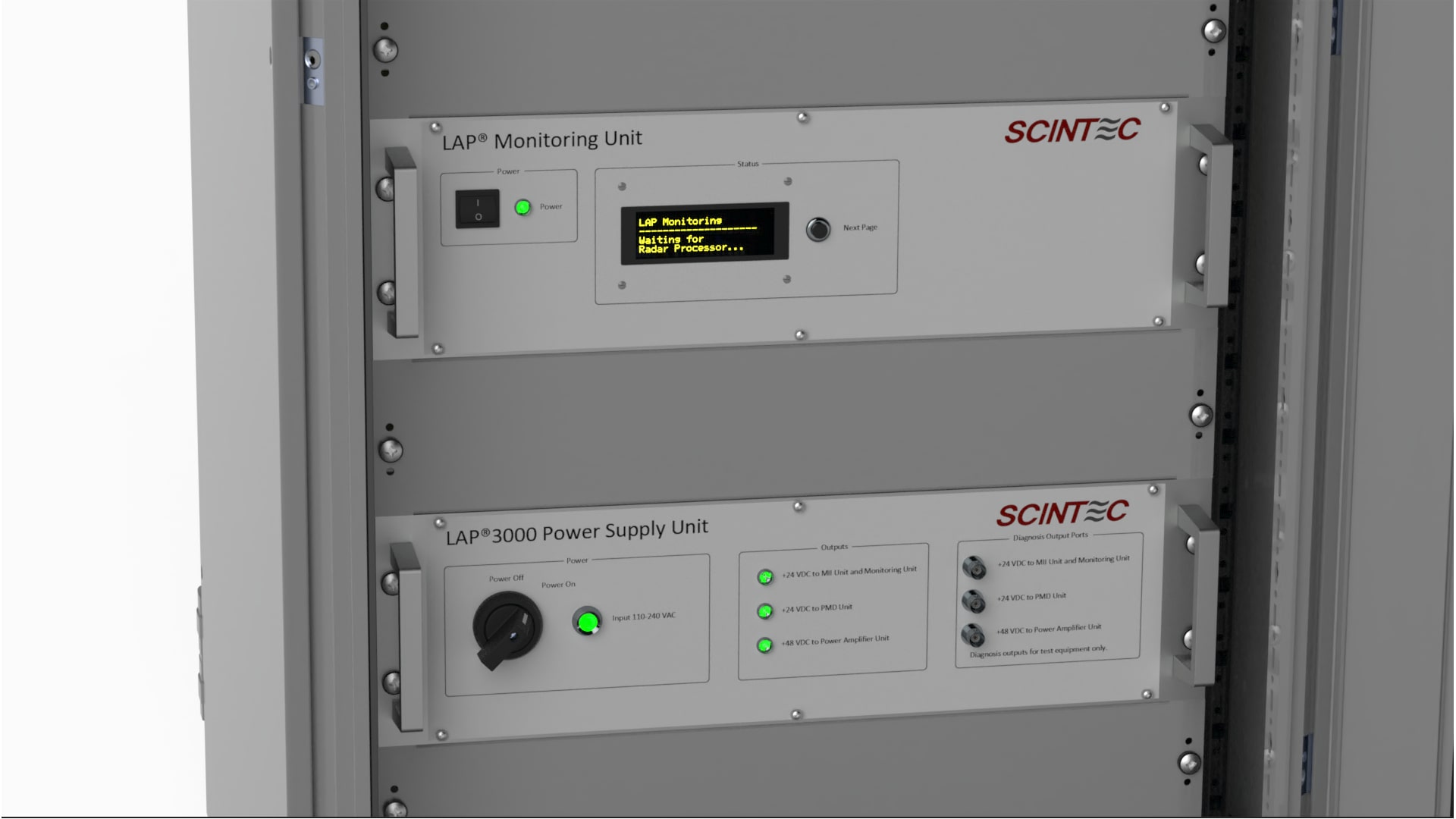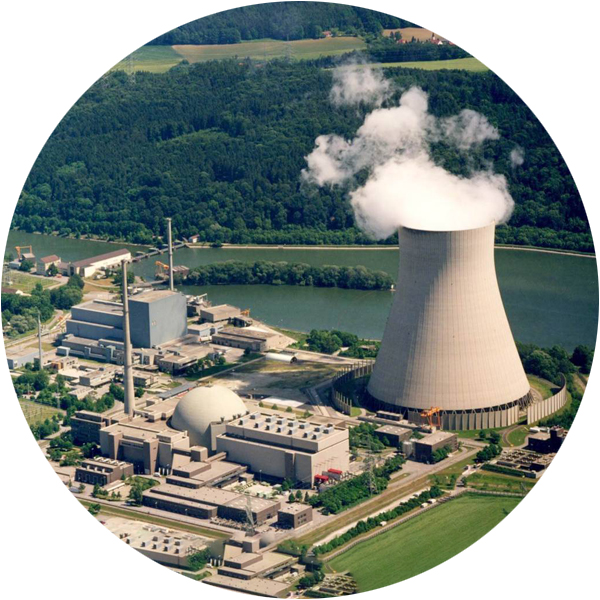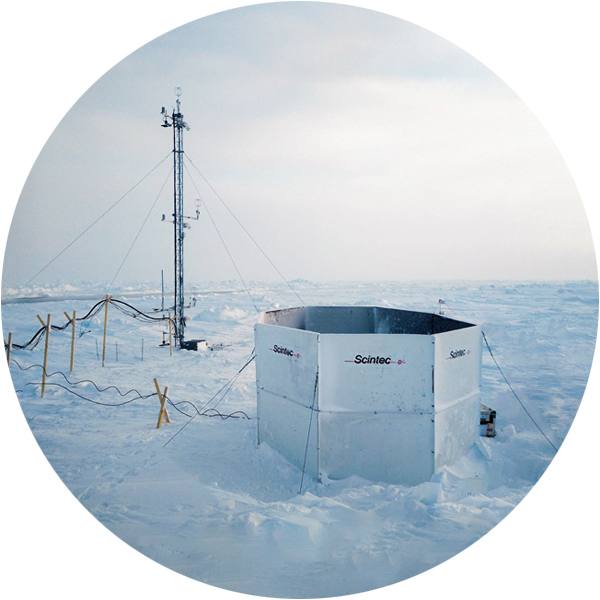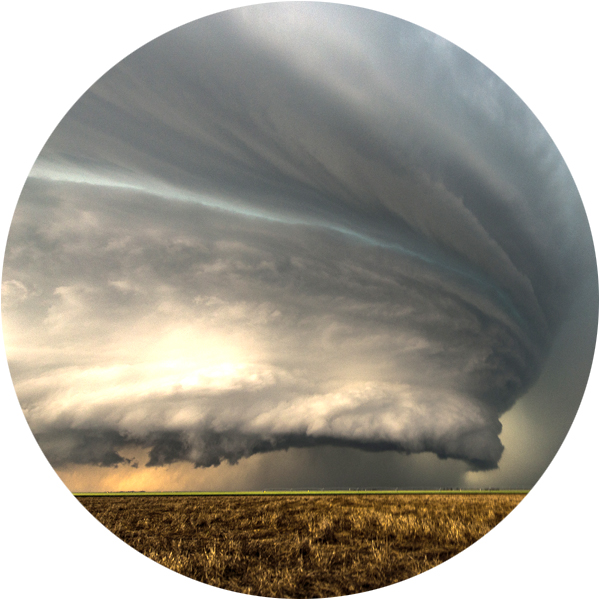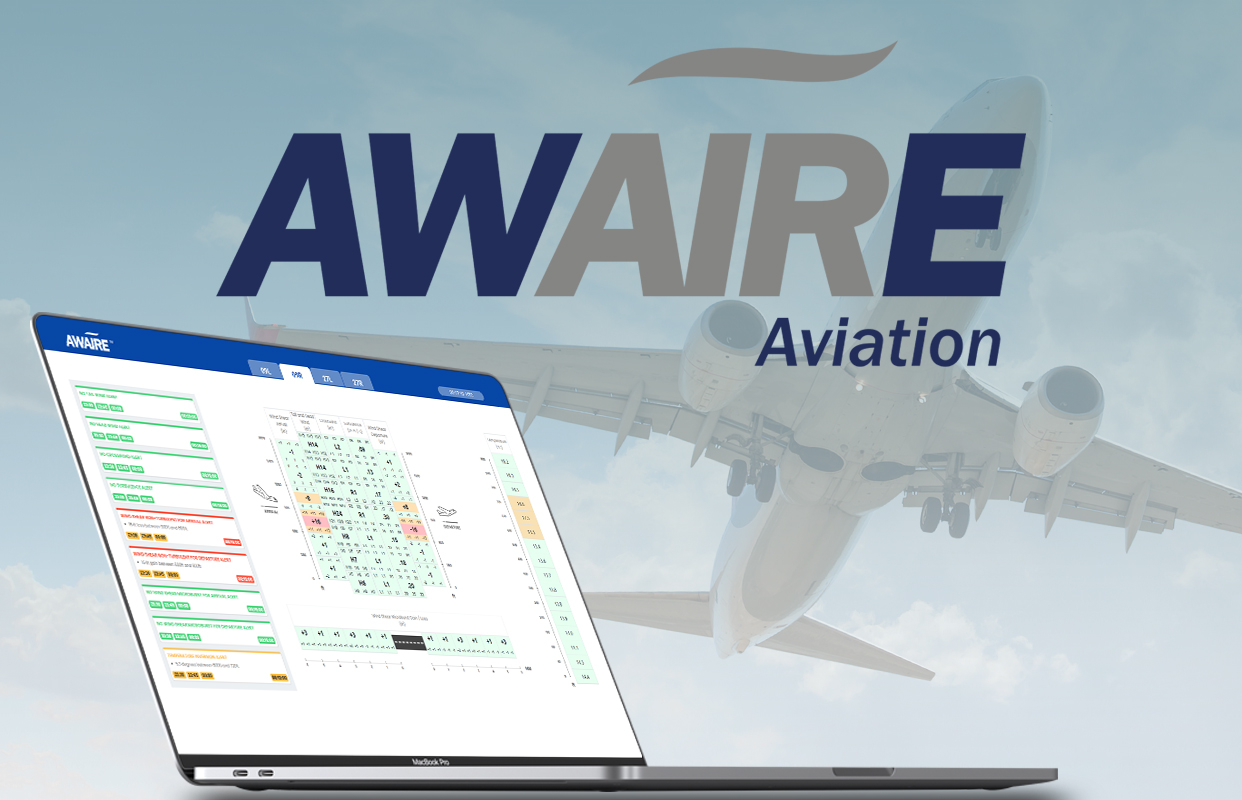This is the standard model of the LAP®3000 Radar Wind Profilers for reliable and continuous wind measurements up to a height of 4 km above the ground with proven performance. The integrated clutter screen yields optimum ground-clutter suppression and ensures safety by shielding the RF radiation. Multiple radio-frequency variants are available for use in different frequency allocation regions worldwide.
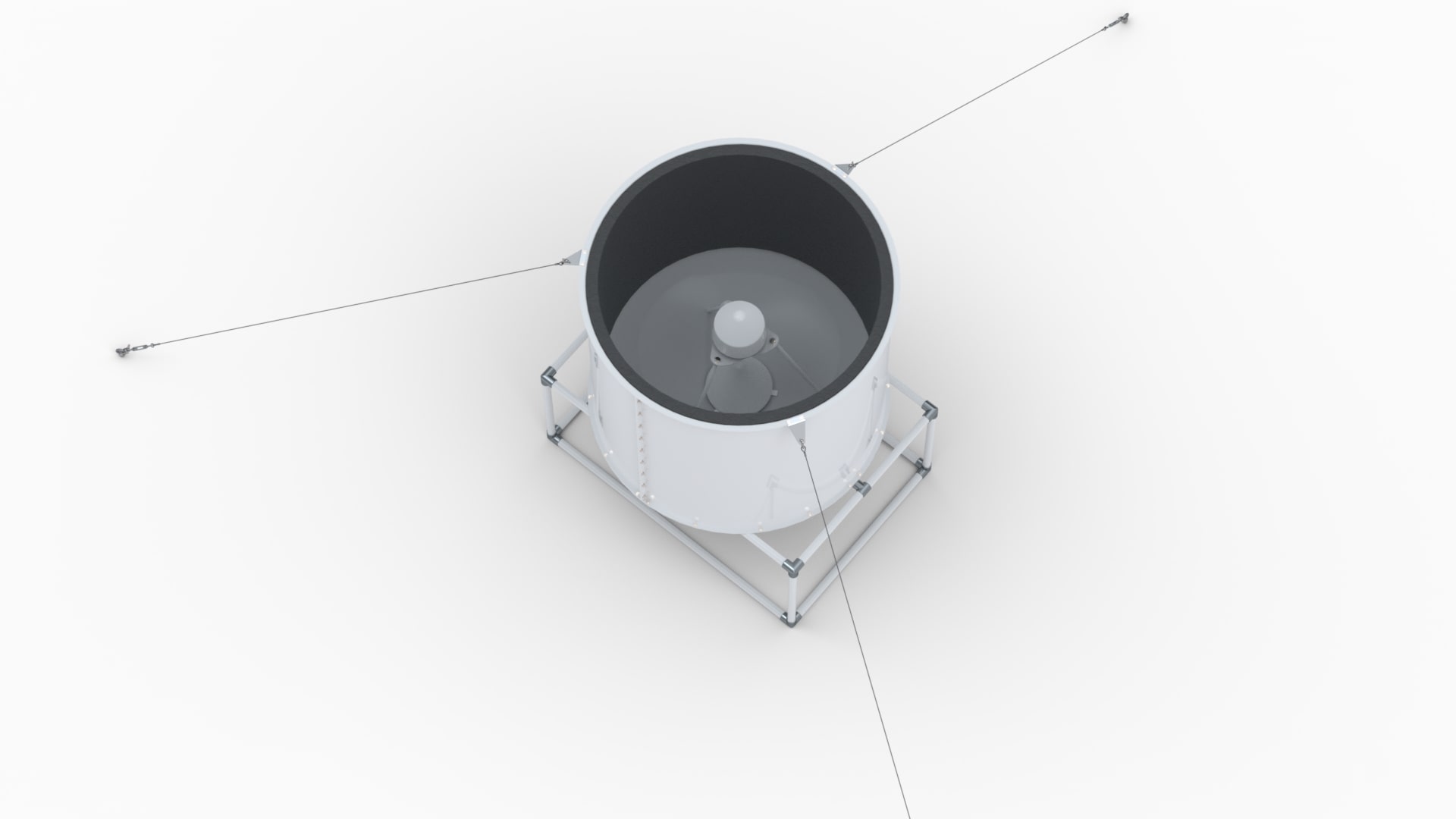
This RASS Extension adds the capability for measuring temperature profiles to a LAP®3000 Radar Wind Profiler.
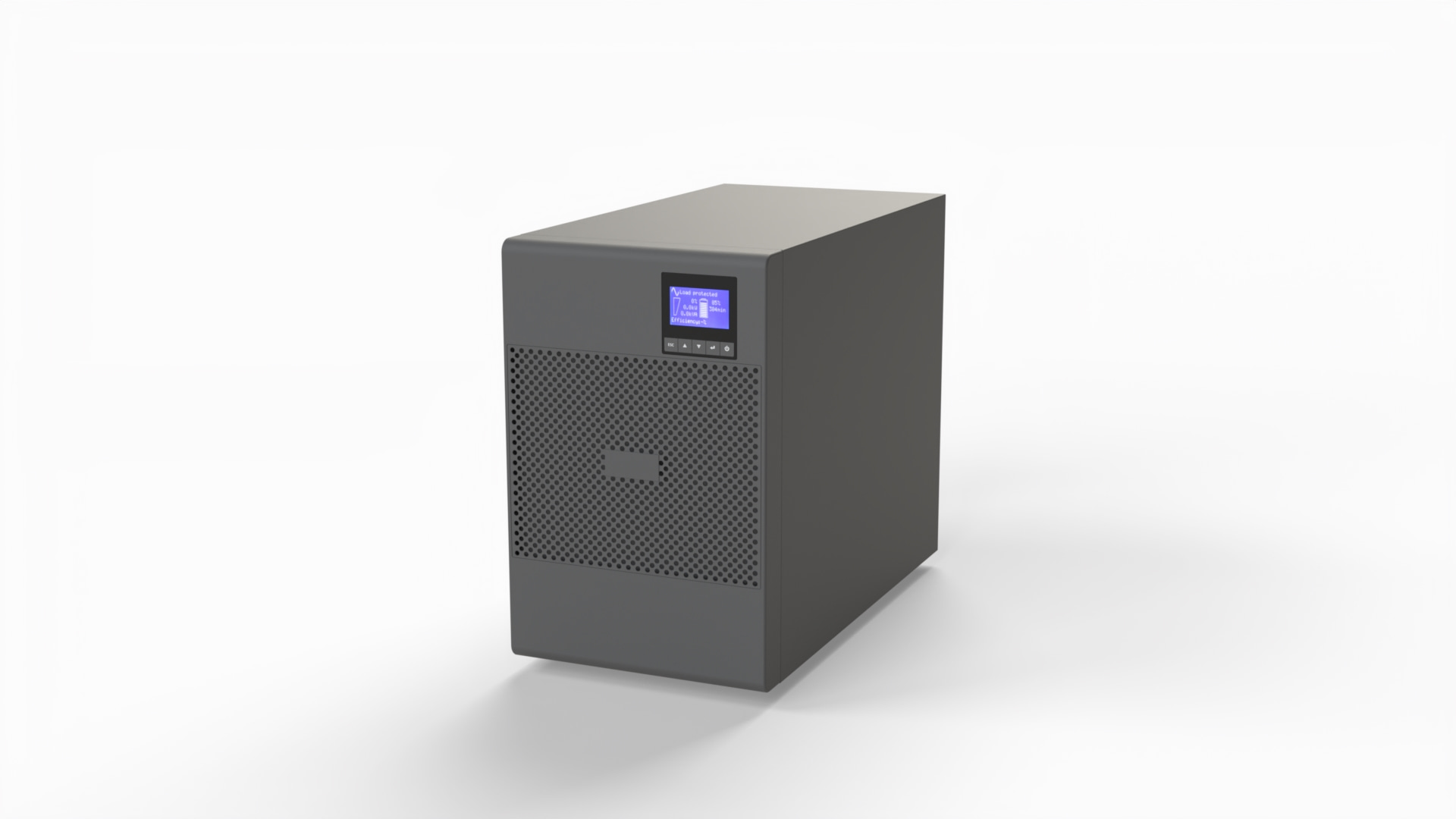
for LAP®3000
The UPS provides backup power to a LAP®3000 Radar Wind Profiler for at least 20 minutes at full system operation.
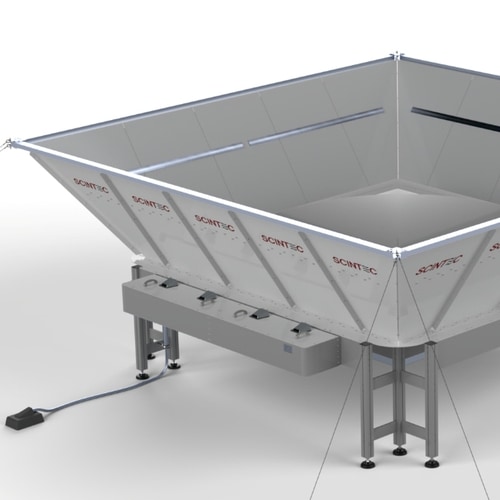
The larger antenna aperture of this model provides the highest performance and clutter resilience that the most critical applications demand.
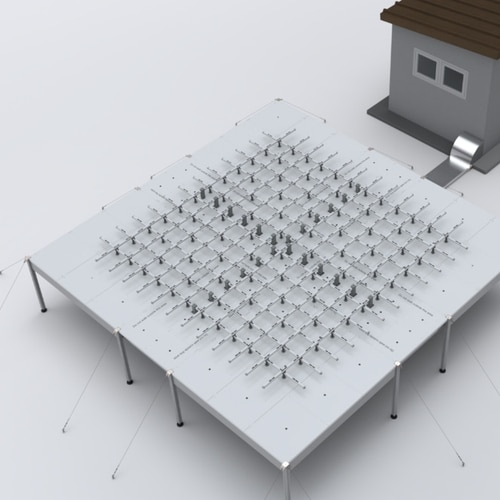
This model operates on a lower radio frequency and achieves the highest measurement range.
AWAIRE Aviation is a hardware, software and service package which is designed to provide the most complete, accurate and reliable information about upper winds and temperatures and to bring this to airport controllers, managers, meteorologists and pilots. AWAIRE Aviation uses a variety of the most advanced sensing technologies to continuously measure all relevant wind, temperature and turbulence parameters in the area of the departure and climb paths with high distance resolution, precisely and in near real-time. This includes wind speed and direction relative to the airplane as well as both, turbulence (EDR), vertical wind shear and density altitude.

